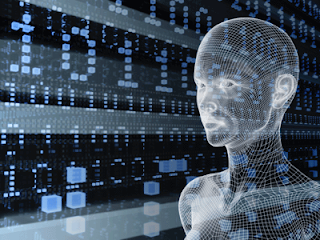The Real Threat of Cyber Terrorism
Identity theft — mainly, fraudulent spending — has affected hundreds of millions of people, causing hundreds of billions in losses worldwide in the past decade.
Today, though, your credit card number isn't the only target of hackers' keystrokes...
I bank with an online interest-bearing checking account. I use it to make utility, car, cable, and phone payments. It also contains my entire banking and ATM transaction history.
I pay my mortgage through a separate online account.
I have a brokerage account.
I manage my insurance and health savings account (HSA).
I have an individual retirement account (IRA).
I have a credit card account.
And of course, I have an email account, which doesn't forget anything and is a catch-all for correspondence from any person or business I interact with: orders, confirmation numbers, pictures, usernames, etc.
The very fabric of my life — and yours, I'm sure — is sewn together with digital thread.
It's not just our financial data that's at risk; it's our personal information, our likes and dislikes, our habits, and even our geographic location.
Google knows what you need and how you're getting it. It knows where you're going and how you're getting there. It knows what you're cooking. It knows when you're sick.
Social media, apps, and smartphones have added a whole new layer to this.
People chronicle their lives on Facebook, telling the world what movies and books they like, what they're doing over the weekend, even which coworker annoys them. Some even sync their phones' GPS with these accounts to broadcast their location as they go.
It's all out there in the ether, strings of ones and zeros floating on a server in some cloud.
Individually, you may not think much of it. But when combined, you have a dossier on a nation — a psychological profile, a financial profile, a spending profile, a medical history, a travel log, a family tree, a social interaction chart.
We're way past identity theft...
These mountains of data are our new Twin Towers.
We've all seen how penetrable supposed "secure systems" can be.
Hacking has come to be the new tool of both criminals and law enforcement. It's at the core of today's activism, now known as hacktivism.
And more and more each day, it's terrorists' new weapon of choice.
The most important thing to know is that this stuff is already happening.
"It is now clear this cyber threat is one [of] the most serious economic and national security challenges we face as a nation," President Obama said during a speech.
"We know that cyber intruders have probed our electrical grid, and that in other countries cyber attacks have plunged entire cities into darkness," the president said.
Keep this issue in mind... when the market comes back, this will be one of the prime places to be.
Call it like you see it,
Nick Hodge
Today, though, your credit card number isn't the only target of hackers' keystrokes...
What Do You Do Online?
I bank with an online interest-bearing checking account. I use it to make utility, car, cable, and phone payments. It also contains my entire banking and ATM transaction history.
I pay my mortgage through a separate online account.
I have a brokerage account.
I manage my insurance and health savings account (HSA).
I have an individual retirement account (IRA).
I have a credit card account.
And of course, I have an email account, which doesn't forget anything and is a catch-all for correspondence from any person or business I interact with: orders, confirmation numbers, pictures, usernames, etc.
The very fabric of my life — and yours, I'm sure — is sewn together with digital thread.
It's not just our financial data that's at risk; it's our personal information, our likes and dislikes, our habits, and even our geographic location.
Google knows what you need and how you're getting it. It knows where you're going and how you're getting there. It knows what you're cooking. It knows when you're sick.
Social media, apps, and smartphones have added a whole new layer to this.
People chronicle their lives on Facebook, telling the world what movies and books they like, what they're doing over the weekend, even which coworker annoys them. Some even sync their phones' GPS with these accounts to broadcast their location as they go.
It's all out there in the ether, strings of ones and zeros floating on a server in some cloud.
Individually, you may not think much of it. But when combined, you have a dossier on a nation — a psychological profile, a financial profile, a spending profile, a medical history, a travel log, a family tree, a social interaction chart.
We're way past identity theft...
These mountains of data are our new Twin Towers.
The Real Threat of Cyber Terrorism
We've all seen how penetrable supposed "secure systems" can be.
Hacking has come to be the new tool of both criminals and law enforcement. It's at the core of today's activism, now known as hacktivism.
And more and more each day, it's terrorists' new weapon of choice.
The most important thing to know is that this stuff is already happening.
"It is now clear this cyber threat is one [of] the most serious economic and national security challenges we face as a nation," President Obama said during a speech.
"We know that cyber intruders have probed our electrical grid, and that in other countries cyber attacks have plunged entire cities into darkness," the president said.
Keep this issue in mind... when the market comes back, this will be one of the prime places to be.
Call it like you see it,
Nick Hodge



